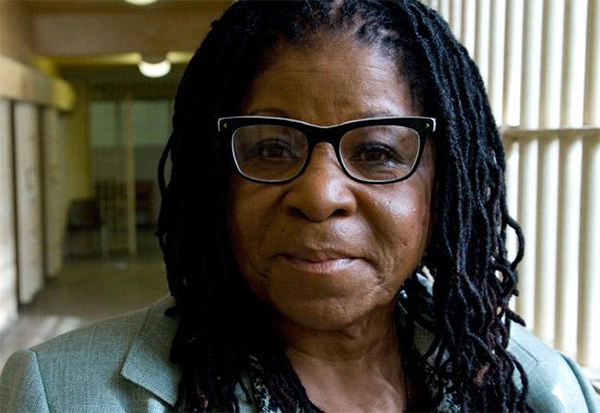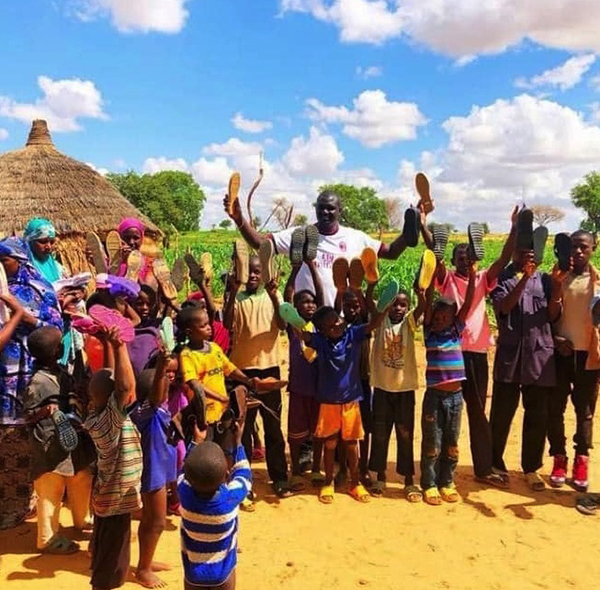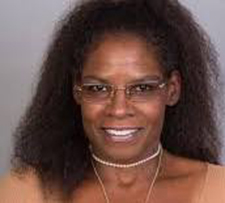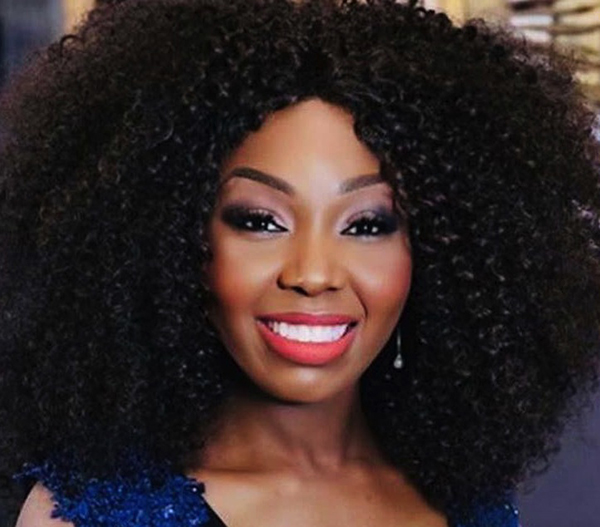By Darlene Donloe
Contributing Writer
Formerly incarcerated women reentering society have a soft place to land at A New Way of Life Reentry Project.
The organization promotes healing, power and opportunity for formerly incarcerated people by taking a multifaceted approach to mitigating the effects of, and ultimately eliminating, mass incarceration. It also provides housing, case management, pro bono legal services, advocacy, and leadership development for people rebuilding their lives after incarceration.
The women can thank Susan Burton, who launched the organization in 1998 as a way to help women with whom she shared similar circumstances.
At one time, Burton, who recently stepped down from the day-to-day operation of the organization she founded, struggled to rise above a life of poverty, violence and loss and was in and out of mass incarceration for nearly two decades.
After being released from prison for the sixth time, Burton accessed recovery services in an affluent area of Los Angeles. There she discovered and embraced opportunities that were never offered before.
She became determined to bring those resources to areas plagued by poverty and over-incarceration.
Starting out with a single reentry home in South Los Angeles, A New Way of Life has grown into a holistic reentry program that has teams dedicated to housing, legal services, workforce and education development and advocacy. Since its establishment, the organization has provided housing to more than 1,400 formerly incarcerated women, helped reunite more than 400 women with their children, and provided pro bono legal services to more than 3,400 community members with conviction histories.
Pamela Marshall and Michael Towler serve as co-directors of A New Way of Life and are continuing Burton’s efforts.
Marshall was navigating life as a single mother when she was connected with Burton through the transitional welfare to work program. After the program ended, Marshall was rehired as an administrative assistant before transitioning to family reunification case manager, office manager and then co-director in 2020.
Before taking the reins, Marshall, 38, who has been with the organization since 2011, also worked six months in the housing program.
“In the beginning, it was a job,” said Marshall, a Los Angeles native. “While working with women, I began to realize that the world was bigger than myself. There were drugs, alcohol, and incarceration all around me. I became educated. I believe in the mission. I believed in Susan [Burton] and what she’s doing.”
Every year, nearly 700,000 people are released from American prisons, and an estimated 9 million are released from jail. According to the National Institute of Justice, almost two-thirds of them are arrested again within three years.
“A New Way of Life is not your everyday program,” said Marshall, a single mother of two. “We are freedom. Our individualized approach allows us the opportunity to be flexible with people. We provide hope and are restoring lives, families, and communities.”
Marshall explained that A New Way of Life offers a holistic reentry, “giving people an opportunity to do something different.”
“Sometimes we’re never given an opportunity,” Marshall said. “With a holistic reentry, it’s about meeting folks where they are and supporting them.”
Marshall said the organization is about more than just housing.
“Although housing is the foundation, it’s the community and the sisterhood that is created,” she said. “It’s about the respect and dignity that goes into our interaction. We allow people to have autonomy over themselves.”
The vision of A New Way of Life is a world where every person can make decisions for their own life, is accountable for those decisions, and is valued as a contributing member of the community.
The women who make their way to A New Way of Life got there by writing to the organization while they were incarcerated.
“We let them know if a bed will be available when they are released,” Marshall said. “When they are released we are there. They are greeted by the staff, most of whom were formerly incarcerated and brought into a home environment where they have the freedom to heal and grow. We help get them an I.D., driver’s license, clothing, birth certificate, hygiene kits and employment. We help them with whatever their goals are including continuing their education.”
Women are also helped with legal services and their employment rights.
“We help expunge their records,” Marshall said. “We have a team of job developers that support the women in getting into school and to gain employment. The women get help in resuming and rebuilding their lives. We also have a six-month leadership course workshop. We talk about how to become active community members and how to advocate for yourself and your family.”
Currently, A New Way of Life, which works primarily through word of mouth, has 11 homes and can accommodate 83 women at any given time. There are three houses in Long Beach, six in South L.A., and two in Montebello. Each house has a 10 p.m. curfew. The women start every day with a morning meditation to get grounded for the day.
“We set goals for the day,” Marshall said. “We ask that everyone takes responsibility. Everyone pitches in at the house. Our staff provides a home-cooked meal for residents every day.”
About 50-60% of the women at A New Way of Life are Black. The next biggest demographic percentage is Hispanic, then white and Asian. The women, some of whom are mothers, come from all walks of life and range in age from 18-74.
The women can stay as long as it takes them to get their lives together. There is no time restriction.
After women have proven themselves, there are five independent living homes in which they can live. There’s no staff and no time frame for them to leave.
Once released there are a number of barriers women have to face, along with the mitigating effects of mass incarceration.
“One of the biggest is family separation,” Marshall said. “We have to talk about family separation and the stealing of Black babies. There is a fast-track adoption.
“The Adoption Safe Families Act of 1997 creates a timeline people are given to get their life on track and get their kids back. The system has disproportionately separated Black families. We want to bring awareness to this issue. When a person goes to prison, their family serves time, too. Therefore, the healing process must be inclusive of the entire family.”
Asked why A New Way of Life has been so successful, Marshall said it all “just comes together.”
“It works,” she said. “It’s a successful reentry model. It’s the heart. It’s about respect and dignity that goes into the residents. It’s the freedom of not feeling that they are still incarcerated. At ANWOL, we have people who actually care.”
Admittedly, Marshall gets emotional when she thinks about the program.
“It’s rewarding to be able to make a difference,” she said. “I see the determination in so many of our residents. I see perseverance. I see them overcome so much.
“It inspires me,” she added. “It gets emotional. You see the trauma and the pain. As a mother, I can’t imagine my daughter going through half this stuff. For me, being able to see a mother hug her child for the first time in five years – there’s nothing better.”
Marshall admits the job has its ups and downs.
“I feel honored and humbled to work here,” she said. “This is not an easy job. ANWOL is shaping what women’s reentry looks like. It highlights and showcases how amazing we can be if we give people an opportunity to really grow. It’s an honor to continue Susan’s [Burton] legacy and move the organization forward. We want to make sure no one is left behind.”
“Making a Difference” is a weekly feature profiling organizations that are serving their communities. To propose a “Making a Difference” profile, send an email to newsroom@wavepublication.com.
Darlene Donloe is a freelance reporter for Wave Newspapers who covers South Los Angeles. She can be reached at ddonloe@gmail.com.













